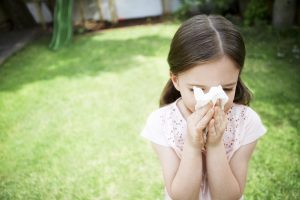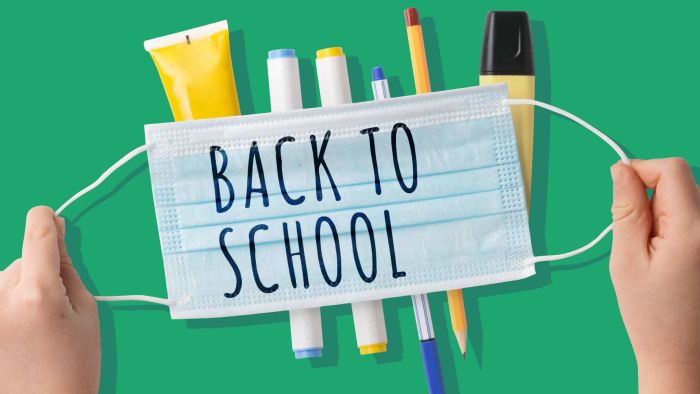Allergies at school
Allergies at school are very common in children when they are exposed to various allergens. The school environment can be the trigger for the onset of allergic symptoms for your child. Children have allergies at a rate of 25% and the school environment is flooded with a plethora of allergens that can trigger allergic symptoms.
What allergies could my child get at school

Allergies at school are no different from the wider environment.
Indicatively, your child may present with :
Allergic rhinitis
- Shortness of breath and coughing when playing or laughing
- Catarrh
- Headaches
- Eczema
- Atopic dermatitis
- Allergy to foods
- Allergy to latex and plastics
- allergy to medicines such as aspirin
- Allergy to cold surfaces also known as urticaria
What allergens may be present at school, and what are the relevant symptoms?
The allergic symptoms that can occur at school can range from very mild, such as occasional sneezing and itchy noses, to very severe and life-threatening, such as asthma attacks or anaphylactic reactions that can lead to death.
2/3 of schools have at least one child at risk of developing anaphylaxis in their environment. 15% of children at the age of 14 years have been diagnosed with 2 or more allergic diseases, such as asthma, eczema, hay fever, allergic rhinitis. The coexistence of asthma is a risk factor for more severe reactions in children with food allergy.
Allergens that can affect your child can be dust mites, mould spots, moisture on school surfaces, trees and plants surrounding the school environment, various objects, or even the canteen if it is a child who suffers from food allergies.
What allergy tests can I do before school to check my child?
If your child has not shown any allergy symptoms or you are not sure if he or she has any allergies, then you can do a simple screening test by choosing one of the following allergy diagnostic tests which can be done with a simple blood test.
Your child can do either one or a combination of allergy tests . All diagnostic tests are molecular and have high sensitivity.
In case you are not sure and want to test for more than 300 allergens (food, mites, dust mites, fungi, pollen, trees) which are the most common allergens in the school environment (apart from medicines) you can choose the diagnostic tool ALEX test.
To check if your child is allergic to insect venoms (bee-wasp etc.) which is a possible development of anaphylactic shock, you can choose the diagnostic tool TVDx
For children with wheezing and difficulty breathing, or symptoms of severe rhinitis the diagnostic tool TPDx will tell you if your child is allergic to tree pollen, and seasonal, or annual plants, that can cause allergy or even asthma.
In case of allergy to medicines or vaccines you can choose the basophil activation test (BAT test)
Additionally, there you can test individual RAST allergens under the guidance of your allergist, based on your history.
In the case of a positive allergy test result of your child or yourself, or the presence of allergy symptoms, you should consult an allergist
Protect and prepare your child from allergies at school.
Allergies are now very common in children. Parental anxiety is very likely to affect the child emotionally, so a proper briefing from the allergist is improtant.
There should be family support, with everyone being fully informed about the relevant risks, and the teachers / school principal should be briefed accordingly.
Social restriction or exclusion may be another issue that the allergic child will have to deal with at school, and will therefore require additional support from his/her environment.
How do I prepare my allergic child for school?
Along with pencils and backpacks, you should also provide your child with the necessary medical supplies. Double-check that you have all your child’s medicines ready. If possible, give the school medicine that will not expire so they have it for emergencies.
If your child wont have the epinephrine on his/her person, make sure it is available at the doctor’s office, in the classroom and anywhere else your child spends time, such as an after-school area. Label the epinephrine injection with your child’s name, photo and emergency contact information. Also, provide your child’s teacher with safe food choices.
Explain what allergies your child has, what they mean, and how severe a reaction can be. Explain the idea of cross-contamination and clearly state how they can help keep your child safe. Be reasonable (don’t ask for things that are not necessary) and honest (don’t make things seem more serious than they are).
How do I tell the school authorities about my allergic child?
At the allergist appointment, you should discuss about and be briefed with a food allergy emergency plan. Prepare the necessary copies for school.
You can also tell them that epinephrine should be given in case of a severe reaction and give the emergency contact number.
At the school meeting, it is important to remind everyone that they should immediately give epinephrine if there is a severe allergic reaction and then call 911. Create different scenarios, such as snack time, lunch time, class parties and field trips. Find out where the storage area for medicines is located.
Ask :
- where the food will be kept
- that your child will eat
- who will clear the table
- who supervises lunch and snack time
- who will be responsible for hand washing
- who will train substitute teachers and special education teachers to recognise and deal with a reaction
- where the epinephrine will be kept and who should administer it if needed
Ask the school to:
- Educate staff on how children describe allergic reactions. They may say that the food tastes spicy, their tongue is hot, their tongue and mouth feel itchy.
- Discourage sharing food between children.
- Encourage all children to wash their hands with soap and water before and after eating. Disinfectant hand gels do not remove allergens.
- Wiping down lunch tables with a disposable disinfectant wipe instead of a sponge, which could transmit allergens. This should be done by an adult, not a child.
- Ask teachers not to use food as a reward in class and give several days notice of food-related events, including birthday parties.
- Watch out for non-foods that could contain allergens, such as materials for artwork, class projects or pets and their food.
